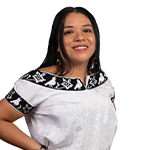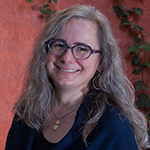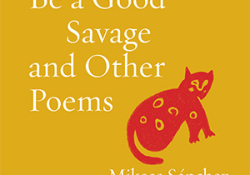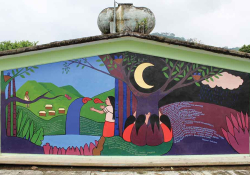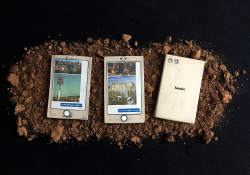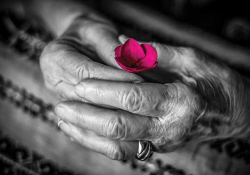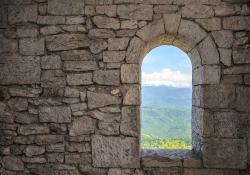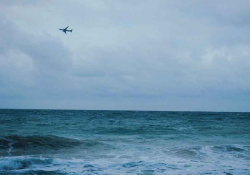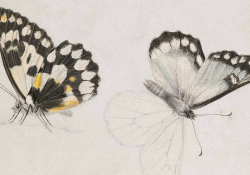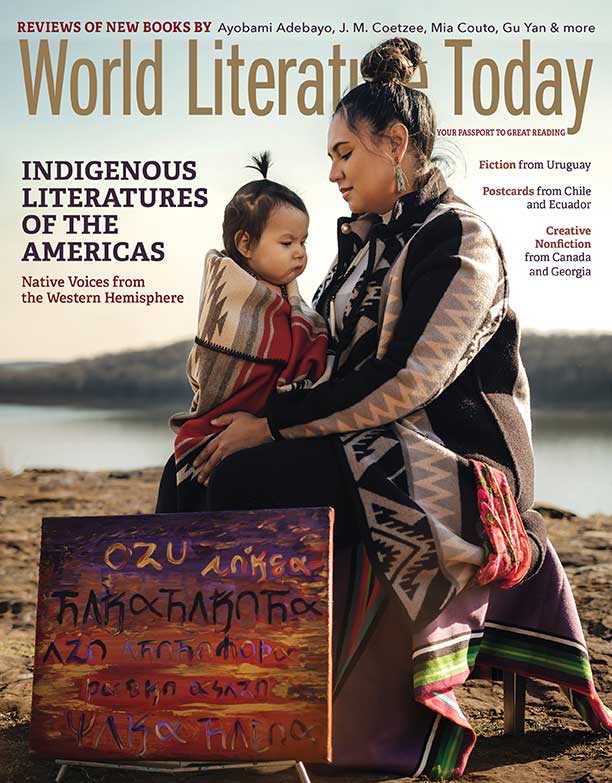Two Poems from Zoque
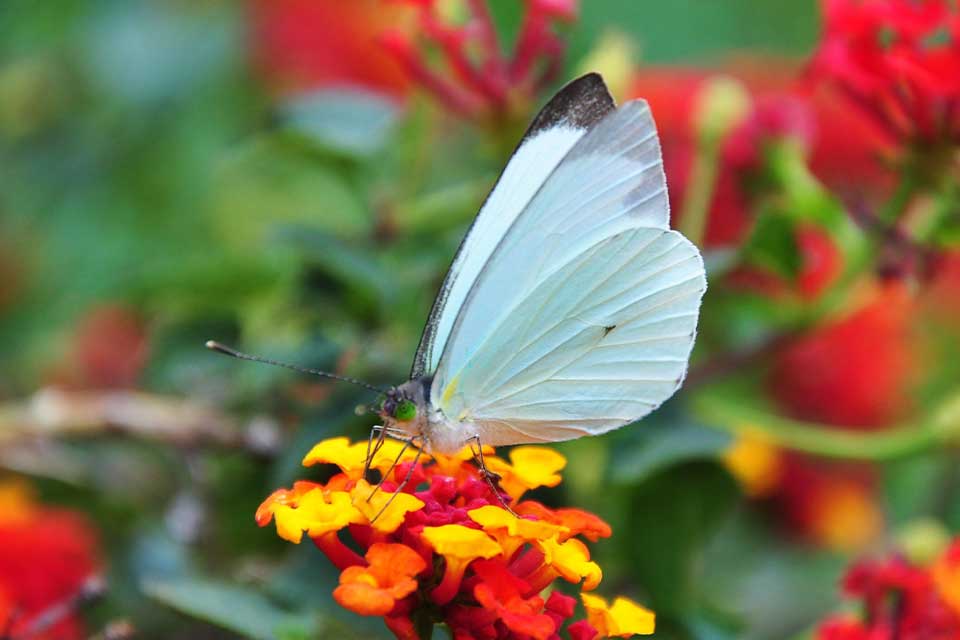
[Tä’äjk]
Tä’äjk
ijsyi’ajpajna’ sänhkä’ pitzä’omoram
watpajna’ kayajupä’koroyaram
äj’ wejkäis’te myajkpäupä te’ kakuy
äjne’rena’ te’ wane poyo’ajupä sänmänäuk
Metzpatzi’ te’ yäjkpä tzajy jamemitkuy’isnyi’e
te’ sak’konukskuy ni’is ji’ myanepä’
¿Jujtzyi’e nhtä’ yajpa yä’ janatzapkuy?
¿Jujtzyi’e nhtä’ jampäyajpa nhtä’ ‘toyaram?
Jä’ä
äj’ wejkäjinh majkpäutzi te’ kakuy
tese’ ijtkeruma’ kaku’y jomikoroya
[Ayer]
Ayer
veía luces en oscurana
entonaba rapsodias a olvidados
Fui el grito que desdeñó la muerte
el canto que se volvió polvo antes del alba
Busco el hilo negro del recuerdo
el remiendo a esta ausencia
¿Cómo deshacer este silencio?
¿Cómo contar las horas sin tropezar con la flama?
Sí
fui el grito que desdeñó la muerte
y tengo aún algo de mortaja en mi mañana
[Yesterday]
Yesterday
I saw lights in the darkness
chanted rhapsodies to the forgotten
I was the shout that spurned death
the song that turned to dust before dawn
I search for memory’s dreadful black thread
something to mend this loss
How can I unravel this silence?
How can I mark time without stumbling into lava?
Yes
I was the shout that spurned death
yet her shroud still veils my tomorrow
[Ne’ sutu’ ‘wyrä’ tanhtanh’jinh]
Ne’ sutu’ ‘wyrä’ tanhtanh’jinh
wäkä nhkäwä’ te’ tzajp
ne’ sutu’ nhtumä’ ‘äj jana’tzame
meya’upu’is nhwyaj’yinh
ne’ sutu’ mparä’ meya’is tzyi’okoy
‘tyi’okoyajupä suksyi’ajupäis
teserike myetzyi’apapäma a’a’pänistam
nu’a’yomo’is wyane’omo
¿Juwa’ makyajpa’ te’ popo’ranhtanh’tam
‘kyäkiaj’papäis te’ tzajp?
¿Juwä’ nukpa’ te’ kojama’ peyase’wejpapä?
[Quiero peregrinar con mariposas]
Quiero peregrinar con mariposas
y tapizar el cielo
quiero unir mi silencio
con cabelleras del oleaje
quiero encontrar el corazón del mar
que perdieron los ahogados
y que los navegantes siguen buscando
en cantos de sirenas
¿A dónde emigran las mariposas blancas que tapizan el cielo?
¿Dónde arriba el alma y su alarido de halcón?
[I want to join the pilgrimage of butterflies]
I want to join the pilgrimage of butterflies
and cloak the sky
I want to braid my silence
with curling waves
I want to find the depths of the sea
that those who drowned lost
those the seafarers still seek
in the sirens’ songs
Where do the white butterflies
that cloak the sky migrate?
Where does the soul’s falcon cry alight?
Translations from the Zoque & Spanish
Translator’s Note
by Wendy Call
These two untitled poems are from Sánchez’s 2006 book Tumjama maka mujsi’ / Y sabras un día (And one day you will know), published in her home state of Chiapas, Mexico. She was twenty-six when this book appeared, the first of six books of bilingual Zoque-Spanish poetry that Sánchez has published. She was the first woman to ever publish a book of poems in her home language, which has about seventy-five thousand speakers; her variant of Zoque, Copainalá, has fewer than ten thousand speakers.
Of the poems in this collection, renowned Maya poet Jorge Miguel Cocom Pech wrote, “In the verses of each one of her poems, the poet delicately weaves images as if they were a game of light, passing through the skylights of the dawn of another time, beyond the calendars that humans invented to trap history’s threads.”
Both poems are taken from longer poem series in Sánchez’s 2006 book. The poem that begins “Yesterday” appears in the book’s title series, while the poem that begins “I want to join the pilgrimage of butterflies” is from a series titled “Te’ anima wiruba jurü ju dü manemü’ / El alma retorna al grito de silencio” (“The Soul Returns to Silence’s Cry”).
The word “silence” appears in both poems and, indeed, is a theme Sánchez returns to often in her work. There is no specific word for “silence” in Zoque. In the Zoque versions of these two poems, Sánchez uses the phrase “a place without words being spoken” to convey the idea of silence. The silences that Sánchez explores in her poetry range far beyond the absence of words, and so she has various ways of expressing the concept in Zoque.
In her poem about the butterflies’ pilgrimage, the lines “I want to braid my silence / with curling waves” reflect the fact that in Zoque, the same word is used to refer to sea spray and to hair. In much of Sánchez’s work, the terrain of the human—and, especially, female—body is linked to the terrain of the earth. Both are honored and celebrated in her poems.
The poem that begins “Yesterday” includes the seemingly elliptical question, “How can I mark time without stumbling into lava?” This poem—like so many in Sánchez’s body of work—references the devastating 1982 eruption of the Chichón volcano on Zoque land. That eruption was Mexico’s worst natural disaster of the twentieth century. More than two thousand people lost their lives, and many more, including Sánchez’s family, lost their homes. In Zoque communities, people still mark time by noting whether something occurred before or after Chichón’s eruption. As Cocom Pech noted, Sánchez’s poems—and the experiences that inspired them—move us beyond human methods of marking time.
Both of these poems reflect two key themes in Sánchez’s work: her feminism and her ecological consciousness. This strong and clear-eyed vision is part of what drew me so strongly to her poetry. Sánchez and I met at a small gathering for Indigenous women writers that I co-hosted in Oaxaca, Mexico, in 2011. We stayed in touch after that gathering, as I eagerly read and admired her poetry. Seven years later, she asked me to translate some of her poems into English. During the five years that we have collaborated, Sánchez and I have (virtually) visited university campuses together, I have translated interviews with her and essays by her, and we have discussed these translations at both her kitchen table in Chiapas and mine in Oaxaca.
Translator’s note: These poems will be published in How to Be a Good Savage and Other Poems, a trilingual retrospective of Mikeas Sánchez’s six books of poetry, to be published in Milkweed Editions’ Seedbank series in December 2023.
